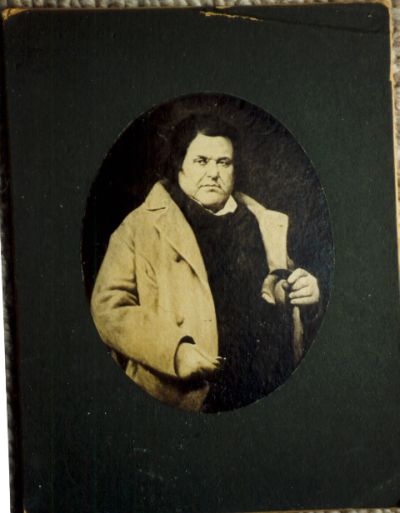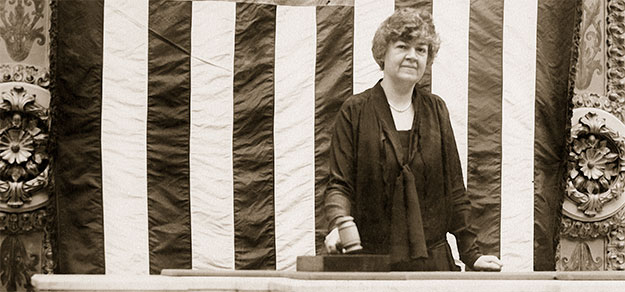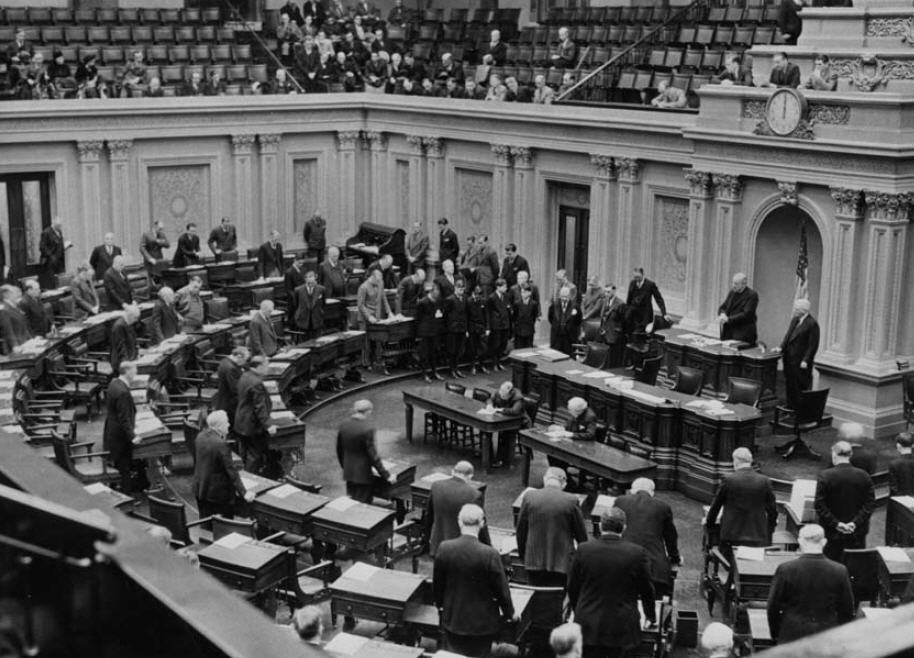|
Thomas B. Fletcher
Thomas Brooks Fletcher (October 10, 1879 – July 1, 1945) was a U.S. Representative from Ohio. Born in Mechanicstown, Ohio, Fletcher attended the public schools, a private school at Augusta, Ohio, and the Richard School of Dramatic Art in Cleveland. He graduated from Mount Union College, Alliance, Ohio, in 1900. He was editor of the ''Daily Leader'', Alliance, Ohio, from 1903 to 1905. He served on the staff of the ''Morning News'', Canton, Ohio, from 1905 to 1906. He became a Redpath lecturer in 1906. He was editor and publisher of the ''Daily Tribune'' at Marion, Ohio, from 1910 to 1922. Fletcher was elected as a Democrat to the Sixty-ninth and Seventieth Congresses (March 4, 1925 – March 3, 1929). He was an unsuccessful candidate for reelection in 1928 to the Seventy-first Congress. Fletcher was elected to the Seventy-third, Seventy-fourth, and Seventy-fifth Congresses (March 4, 1933 – January 3, 1939). He served as chairman of the Committee on Election of Pres ... [...More Info...] [...Related Items...] OR: [Wikipedia] [Google] [Baidu] |
Ohio's 8th Congressional District
Ohio's 8th congressional district sits on the west side of Ohio, bordering Indiana. The cities of Hamilton, Fairfield, Middletown, Springfield, Eaton, Greenville, Piqua, and Troy are part of the district. The district was represented by Republican John Boehner, the 53rd Speaker of the United States House of Representatives. On September 25, 2015, Boehner announced his resignation from the speakership and retirement from Congress, which became effective on October 31, 2015. The current representative for this district is Republican Warren Davidson, who defeated Democrat Corey Foister and Green Party candidate James J. Condit Jr. in the 2016 special election to fill Boehner's seat. Election results from presidential races List of members representing the district Recent election results See also *Ohio's congressional districts *List of United States congressional districts Congressional districts in the United States are electoral divisions for th ... [...More Info...] [...Related Items...] OR: [Wikipedia] [Google] [Baidu] |
69th United States Congress
The 69th United States Congress was a meeting of the legislative branch of the United States federal government, consisting of the United States Senate and the United States House of Representatives. It met in Washington, D.C. from March 4, 1925, to March 4, 1927, during the third and fourth years of Calvin Coolidge's presidency. The apportionment of seats in the House of Representatives was based on the thirteenth decennial census of the United States in 1910. The Republicans made modest gains in maintaining their majority in both chambers, and with the election of President Calvin Coolidge to his own term in office, the Republicans maintained an overall federal government trifecta. Major events A special session of the Senate was called by President Coolidge on February 14, 1925. * Impeachment of Judge George W. English — On April 1, 1926, the House of Representatives impeached Judge George W. English of the United States District Court for the Eastern District of Ill ... [...More Info...] [...Related Items...] OR: [Wikipedia] [Google] [Baidu] |
People From Carroll County, Ohio
A person ( : people) is a being that has certain capacities or attributes such as reason, morality, consciousness or self-consciousness, and being a part of a culturally established form of social relations such as kinship, ownership of property, or legal responsibility. The defining features of personhood and, consequently, what makes a person count as a person, differ widely among cultures and contexts. In addition to the question of personhood, of what makes a being count as a person to begin with, there are further questions about personal identity and self: both about what makes any particular person that particular person instead of another, and about what makes a person at one time the same person as they were or will be at another time despite any intervening changes. The plural form "people" is often used to refer to an entire nation or ethnic group (as in "a people"), and this was the original meaning of the word; it subsequently acquired its use as a plural form of per ... [...More Info...] [...Related Items...] OR: [Wikipedia] [Google] [Baidu] |
People From Marion, Ohio
A person ( : people) is a being that has certain capacities or attributes such as reason, morality, consciousness or self-consciousness, and being a part of a culturally established form of social relations such as kinship, ownership of property, or legal responsibility. The defining features of personhood and, consequently, what makes a person count as a person, differ widely among cultures and contexts. In addition to the question of personhood, of what makes a being count as a person to begin with, there are further questions about personal identity and self: both about what makes any particular person that particular person instead of another, and about what makes a person at one time the same person as they were or will be at another time despite any intervening changes. The plural form "people" is often used to refer to an entire nation or ethnic group (as in "a people"), and this was the original meaning of the word; it subsequently acquired its use as a plural form of per ... [...More Info...] [...Related Items...] OR: [Wikipedia] [Google] [Baidu] |
1945 Deaths
1945 marked the end of World War II and the fall of Nazi Germany and the Empire of Japan. It is also the only year in which Nuclear weapon, nuclear weapons Atomic bombings of Hiroshima and Nagasaki, have been used in combat. Events Below, the events of World War II have the "WWII" prefix. January * January 1 – WWII: ** Nazi Germany, Germany begins Operation Bodenplatte, an attempt by the ''Luftwaffe'' to cripple Allies of World War II, Allied air forces in the Low Countries. ** Chenogne massacre: German prisoners are allegedly killed by American forces near the village of Chenogne, Belgium. * January 6 – WWII: A German offensive recaptures Esztergom, Kingdom of Hungary (1920–1946), Hungary from the Russians. * January 12 – WWII: The Soviet Union begins the Vistula–Oder Offensive in Eastern Europe, against the German Army (Wehrmacht), German Army. * January 13 – WWII: The Soviet Union begins the East Prussian Offensive, to eliminate German forces in East Pruss ... [...More Info...] [...Related Items...] OR: [Wikipedia] [Google] [Baidu] |
1879 Births
Events January–March * January 1 – The Specie Resumption Act takes effect. The United States Note is valued the same as gold, for the first time since the American Civil War. * January 11 – The Anglo-Zulu War begins. * January 22 – Anglo-Zulu War – Battle of Isandlwana: A force of 1,200 British soldiers is wiped out by over 20,000 Zulu warriors. * January 23 – Anglo-Zulu War – Battle of Rorke's Drift: Following the previous day's defeat, a smaller British force of 140 successfully repels an attack by 4,000 Zulus. * February 3 – Mosley Street in Newcastle upon Tyne (England) becomes the world's first public highway to be lit by the electric incandescent light bulb invented by Joseph Swan. * February 8 – At a meeting of the Royal Canadian Institute, engineer and inventor Sandford Fleming first proposes the global adoption of standard time. * March 3 – United States Geological Survey is founded. * March 11 – Th ... [...More Info...] [...Related Items...] OR: [Wikipedia] [Google] [Baidu] |
Chautauqua
Chautauqua ( ) was an adult education and social movement in the United States, highly popular in the late 19th and early 20th centuries. Chautauqua assemblies expanded and spread throughout rural America until the mid-1920s. The Chautauqua brought entertainment and culture for the whole community, with speakers, teachers, musicians, showmen, preachers, and specialists of the day. Former U.S. President Theodore Roosevelt was quoted as saying that Chautauqua is "the most American thing in America." History The First Chautauquas In 1873, the first Chautauqua, Lakeside Chautauqua on Ohio's Lake Erie, was formed by the Methodists. The next year, 1874, the New York Chautauqua Assembly was organized by Methodist minister John Heyl Vincent and businessman Lewis Miller at a campsite on the shores of Chautauqua Lake in the state of New York. Two years earlier, Vincent, editor of the ''Sunday School Journal'', had begun to train Sunday school teachers in an outdoor summer school ... [...More Info...] [...Related Items...] OR: [Wikipedia] [Google] [Baidu] |
78th United States Congress
The 78th United States Congress was a meeting of the legislative branch of the United States federal government, composed of the United States Senate and the United States House of Representatives. It met in Washington, DC from January 3, 1943, to January 3, 1945, during the last two years of Franklin D. Roosevelt's presidency. The apportionment of seats in the House of Representatives was based on the Sixteenth Census of the United States in 1940. Both chambers had a Democratic majority - albeit greatly reduced from the 77th Congress, with the Democrats losing their supermajority in the House and Senate. Along with President Franklin D. Roosevelt, the Democrats maintained an overall federal government trifecta. Major events * World War II continued (1941–1945) * June 6, 1944: Battle of Normandy * November 7, 1944: General elections: ** President Roosevelt was re-elected to a fourth term. ** Senate Democrats kept their majority despite 1-seat net loss. ** House Democr ... [...More Info...] [...Related Items...] OR: [Wikipedia] [Google] [Baidu] |
76th United States Congress
The 76th United States Congress was a meeting of the legislative branch of the United States federal government, composed of the United States Senate and the United States House of Representatives. It met in Washington, DC from January 3, 1939, to January 3, 1941, during the seventh and eighth years of Franklin D. Roosevelt's presidency. The apportionment of seats in the House of Representatives was based on the Fifteenth Census of the United States in 1930. Both chambers had a Democratic majority - holding a supermajority in the Senate, but a greatly reduced majority in the House, thus losing the supermajority there. With President Roosevelt, the Democrats maintained an overall federal government trifecta. The 76th is also the most recent Congress to have held a third session. Major events * April 9, 1939: African-American singer Marian Anderson performs before 75,000 people at the Lincoln Memorial in Washington, D.C., after having been denied the use both of Constitu ... [...More Info...] [...Related Items...] OR: [Wikipedia] [Google] [Baidu] |
75th United States Congress
The 75th United States Congress was a meeting of the legislative branch of the United States federal government, composed of the United States Senate and the United States House of Representatives. It met in Washington, DC from January 3, 1937, to January 3, 1939, during the fifth and sixth years administration of U.S. President Franklin D. Roosevelt. (Because of the 20th amendment, starting in 1937 the new Presidential term began 17 days after that of the new Congress). The apportionment of seats in the House of Representatives was based on the Fifteenth United States Census, conducted in 1930. Both chambers had a Democratic supermajority, with the party increasing their majority in both the House and Senate, and with the reelection of President Roosevelt, maintained an overall federal government trifecta. This is the most recent Congress to feature a Democratic senate seat from the state of Kansas. Major events * January 20, 1937: President Franklin D. Roosevelt beg ... [...More Info...] [...Related Items...] OR: [Wikipedia] [Google] [Baidu] |
74th United States Congress
The 74th United States Congress was a meeting of the legislative branch of the United States federal government, composed of the United States Senate and the United States House of Representatives. It met in Washington, DC from January 3, 1935, to January 3, 1937, during the third and fourth years of Franklin D. Roosevelt's presidency. The apportionment of seats in the House of Representatives was based on the Fifteenth Census of the United States in 1930. The Democrats increased their majorities in both the House and Senate, resulting in a supermajority in both chambers, and along with President Franklin D. Roosevelt maintained an overall federal government trifecta. Major events * April 14, 1935: Dust Bowl: The great dust storm hit eastern New Mexico, Colorado, and western Oklahoma * May 6, 1935: Executive Order 7034 created the Works Progress Administration (WPA). * May 27, 1935: ''Schechter Poultry Corp. v. United States'': the U.S. Supreme Court declared the Nation ... [...More Info...] [...Related Items...] OR: [Wikipedia] [Google] [Baidu] |
73rd United States Congress
The 73rd United States Congress was a meeting of the legislative branch of the United States federal government, composed of the United States Senate and the United States House of Representatives. It met in Washington, D.C. from March 4, 1933, to January 3, 1935, during the first two years of Franklin D. Roosevelt's presidency. Because of the newly ratified 20th Amendment, the duration of this Congress, along with the term of office of those elected to it, was shortened by days. The apportionment of seats in the House of Representatives was based on the Fifteenth Census of the United States in 1930. The Democrats greatly increased their majority in the House, and won control of the Senate for the first time since the 65th Congress in 1917. With Franklin D. Roosevelt being sworn in as President on March 4, 1933, this gave the Democrats an overall federal government trifecta, also for the first time since the 65th Congress. Major events *March 4, 1933: Franklin D. Roosevel ... [...More Info...] [...Related Items...] OR: [Wikipedia] [Google] [Baidu] |


_1938.jpg)


.jpg)


